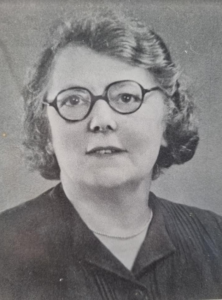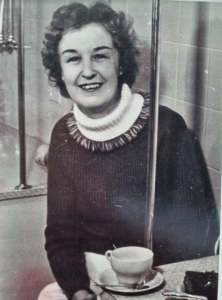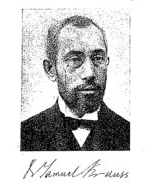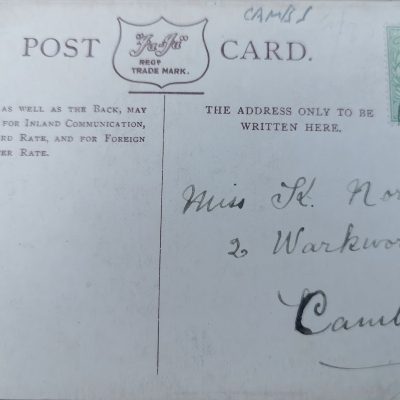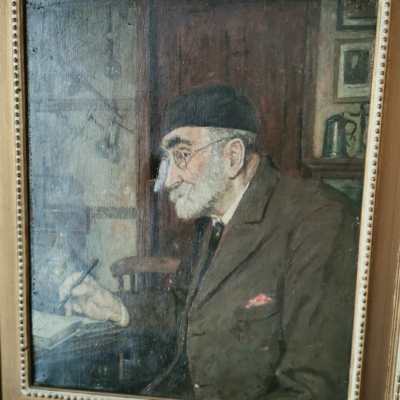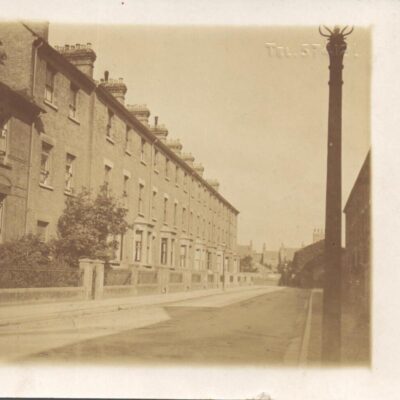Search by topic
- archaeology
- Building of Local Interest
- chapel
- charity
- church
- crime
- dressmaker
- fire
- Great Eastern Railway
- Listed building
- Mapping Relief
- medieval
- oral history
- poverty
- Public House
- Religious House
- Roman
- scholar
- school
- Then and Now
- tudor
- women
- work
- world war one
- world war two
Search by text
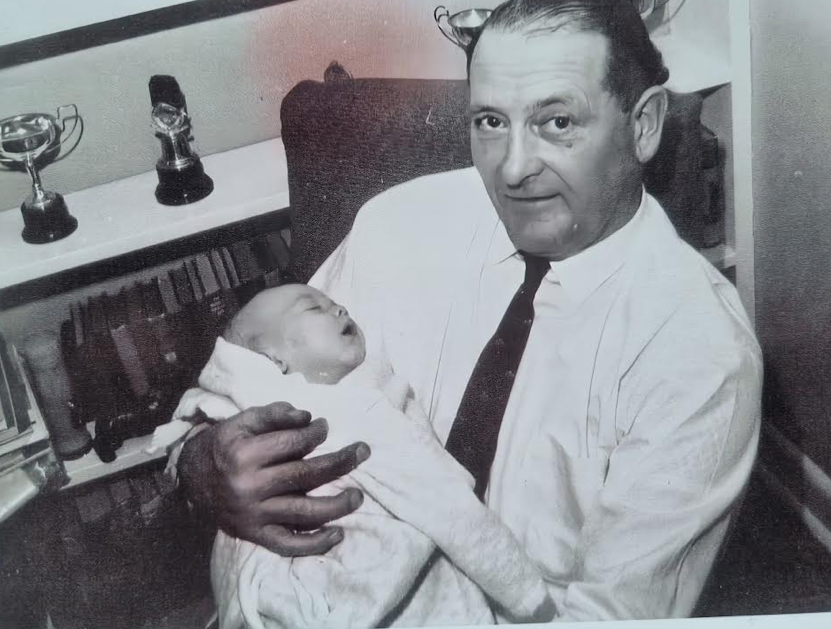 Jack Silvester and son Barton - 10 Warkworth Street
Jack Silvester and son Barton - 10 Warkworth Street10 Warkworth Street
History of 10 Warkworth Street
1887
Rev J W Wynch, Vicar of All Saints
Frederick Vokes, tea dealer
1914
George Westcott Martin, headmaster of the Higher Grade Council Schools later the Central Council School (later Parkside)
1939 – 1946
The Silvesters moved to Cambridge from London at the outbreak of WWII to live with grandparents at 10 Warkworth Street.
In 2022 Bill Silvester wrote to Capturing Cambridge from Australia (the full account of his life in Cambridge is in the document below):
When the war broke out in 1939 my father joined up in the Welsh Regiment. I was but three at the time. Vernon – (Jack ) Silvester, as he preferred, decided it was safer and wise for my mother and I to go back to live with his parents at 10 Warkworth Street. I do not recall the red door, but the residence is correct. I managed to pick up whooping cough which left me with bad asthma. This was just prior to the move to number ten. I remember the house very well as I lived there until the end of the war. I used to play outside in the street and had a scooter to use. I actually rode my scooter into one of the common pillars in the street and my nose was damaged and it bled profusely. Should have gone to a doctor but my ‘Nan’ sat me on the kitchen table downstairs and treated my injury. I should have gone to a doctor but there was a war on.
As a child I was always fascinated by the system of bells that were set near the bottom of the stairs on the wall opposite the staircase. I got into trouble for jangling them to make them ring. My grandfather Eli Reginald (Reggie) slept upstairs near or on the top floor. Maggie slept on her own on the first floor. My mother slept in the room with the bay window, the lounge room. Mum drove an ambulance whilst in Cambridge and met with a USA pilot who flew from one of the nearby airports. I remember mum getting a huge box of chocolates shaped like a heart, and he gave me a lovely toy aircraft carrier which actually catapulted small planes off itsa deck. I always looked forward to his visits.
Maggie sensed that there was to be a war with Germany way back in 1937. In her wisdom she stocked up lots of tinned food in the pantry which was down at the basement level. When food was rationed she would keep us going with treats from the pantry. At the same level if I recall it there was also a small windowless room where we were rushed down to occupy it as a safe place when the air raid sirens went off. if a bomb hit the house we would be OK.
The back garden was only small but my grandad loved rabbits and had over twenty hutches at the rear of the back garden. I used to love to play with them. For a while I could not work out why the hutches kept being emptied of rabbits. When I found out that Grandma was using the rabbits for food and making rabbit stew I was so affected by the loss of grandad’s prize rabbits that I have never like rabbit stew to this day.
All the windows in the house were fitted with blackout curtains to keep out the light in air raids. When the air raid siren rang out at night time, the adults all rushed to close the blinds, and we lit candles. It was scary for me ! I recall going out at times when there were planes in the sky at night. The searchlights would find an enemy plane and the Bofors guns would belt off their shells aiming to hit them. Scary but fascinating for a small child. Grandma became very cross when she found out I had snuck out the front door.
My mother sent me to St. Faith’s school, and grandma would take me to the congregational church most Sundays. My Christian upbringing was valuable. We had virtually no toys during the war, but us schoolboys would gather up horse chestnuts and play ‘conkers’. We would drill a hole through the seeds, tie on a piece of string, knotted at one end so the seed would not fall off, and take turns at trying to break each other’s seed. When we found a boy who had an old dry seed, the fresh ones always broke. We used to remember how many times we could break other boys’ seeds. It was fun!
Marbles were virtually non-existent during the war. The other game we played was with cardboard bottle tops. The boys would collect the bottle tops off the milk bottles. We would then see who could get their top closest to the wall. Winner would take the other boy’s bottle top. I was quite good at this game!
My father’s battalion – the Welsh Regiment – was literally wiped out in North Africa, but he escaped and was sent back to England to enjoy a short furlough. He brought with him a full chest of weapons he had been using and had also taken off dead Germans in the field of battle. His favourite weapon was the German Schmeisser – like the British Tommy Gun but much more deadly. One day he showed how he could shoot the gun by firing it at a bottle at the end of the garden. It made such a huge noise it was frightening. Could not do that today !
When we moved to Australia at the end of the war – 1946 – we lived in Gardiner in Melbourne. I never forgot number 10, and it has plenty of memories for me.
Projects
Contribute
Do you have any information about the people or places in this article? If so, then please let us know using the Contact page or by emailing capturingcambridge@
Licence
This work is licensed under CC BY-NC-SA 4.0






